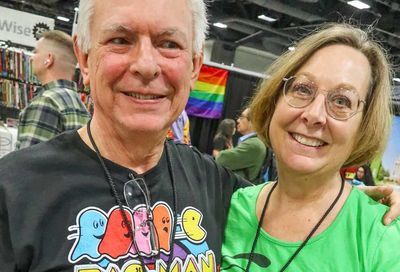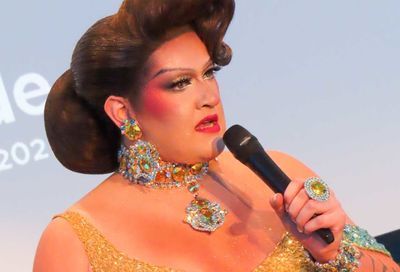Forum: Green Book’s Disappointing Best Picture Win
Spike Lee and "Roma" got run over by the Oscar-winning, feel-good race drama Green Book

As ever, the Academy Awards have delivered a final, glamorous farewell to a memorable film year. And regardless of ratings for ABC’s telecast of the ceremony (they were up more than 10% over last year), some indication that the Oscars still matter came with a tweet from the President, who, on the eve of an all-important summit with North Korea, felt urgently compelled to fire off an angry post in response to the awards.
It wasn’t Roma‘s defeat for Best Picture or Olivia Colman’s shocking Best Actress win over Glenn Close that rattled the President’s nerves, but rather the acceptance speech of one of the night’s high-profile winners, filmmaker Spike Lee.
While accepting his Adapted Screenplay award for BlacKkKlansman, Lee appealed to the audience and millions of viewers to remember that “the 2020 presidential election is around the corner. Let’s all mobilize, let’s all be on the right side of history! Make the moral choice between love versus hate. Let’s do the right thing!”
Lee’s speech never mentioned 45 by name, nor lobbed criticism at any party or ideology. But apparently the President felt attacked, tweeting, “Be nice if Spike Lee could read his notes, or better yet not have to use notes at all, when doing his racist hit on your President, who has done more for African Americans (Criminal Justice Reform, Lowest Unemployment numbers in History, Tax Cuts, etc.) than almost any other Pres!”
That Lee’s message to choose love over hate would be construed by this president as a racist hit seems to fit a common narrow-minded narrative that Lee is a race-baiting rabble-rouser. Thirty years ago on Oscar night, the genteel race relations drama Driving Miss Daisy was the big winner, while Lee’s incendiary take on racial tension, Do the Right Thing, nominated for two awards, was sent home empty-handed.
This year, Academy voters handed Best Picture to another genteel race relations drama, Green Book, choosing (again) a well-produced feature about a bigot’s journey towards realizing that the nice black man in the car should be treated with dignity and respect. Meanwhile, Lee’s incendiary take on racial tension, BlacKkKlansman, was labeled by some critics as too divisive for telling the story of a pair of cops who partner to thwart racist terrorists in their community. So, a meta-textual satirical thriller about a black guy and a white guy teaming up to bring down the Klan is a divisive statement about race relations? Maybe it is to somebody who sees good people on both sides.
Green Book plays it safe enough to appeal to anyone on any side. The movie might not be, as the L.A. Times declared, the worst Best Picture winner since Crash, but it’s disappointing that a film that might have been a middling contender in 1988 beat out a clutch of nominees — from Roma and The Favourite to Vice and BlacKkKlansman — that more profoundly represented the best of 2018.
It’s hard to see the cultural or artistic progress of the last three decades in a film like Green Book that’s still preaching the virtues of black folks quietly waiting for prejudice to be driven out by fried chicken and understanding. As far as many viewers were concerned, Miss Daisy struck again at this year’s Oscars, and Lee agreed. “I’m snakebit,” the director joked in the press room after Green Book‘s Best Picture victory. “Every time somebody’s driving somebody, I lose. But they changed the seating arrangement!” And the Academy has changed enough that, this time, Lee and his film did not go home empty-handed.
André Hereford is a film and theatre critic and contributing editor at Metro Weekly, and co-chairs film programming for Reel Affirmations: DC’s LGBTQ Film Festival. He formerly worked in story development at Spike Lee’s 40 Acres & A Mule Filmworks.
The opinions expressed in Forum do not necessarily reflect those of Metro Weekly or its employees. Add your voice to Forum. Learn how at www.metroweekly.com/forum.
Support Metro Weekly’s Journalism
These are challenging times for news organizations. And yet it’s crucial we stay active and provide vital resources and information to both our local readers and the world. So won’t you please take a moment and consider supporting Metro Weekly with a membership? For as little as $5 a month, you can help ensure Metro Weekly magazine and MetroWeekly.com remain free, viable resources as we provide the best, most diverse, culturally-resonant LGBTQ coverage in both the D.C. region and around the world. Memberships come with exclusive perks and discounts, your own personal digital delivery of each week’s magazine (and an archive), access to our Member's Lounge when it launches this fall, and exclusive members-only items like Metro Weekly Membership Mugs and Tote Bags! Check out all our membership levels here and please join us today!























You must be logged in to post a comment.